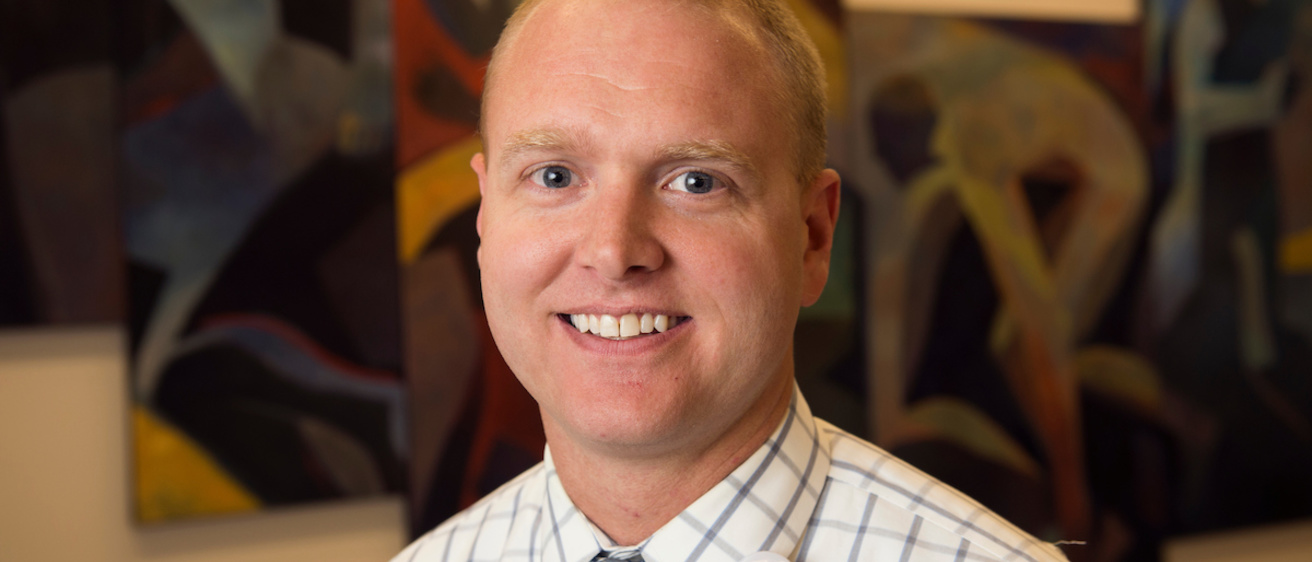Greg Lehmann knew that if he wanted to advance in his field, he would need a broader background in health care administration.
So he completed the University of Iowa Executive Master of Health Administration program, and now he’s health care services manager and clinic administrator at the UI Sports Medicine clinic in Iowa City. In fact, he landed the job before he completed the two-year program offered through the Department of Health Management and Policy in the UI College of Public Health.
Lehmann says his enrollment in the EMHA program gave him an edge over the competition.
“This position required a master’s degree, and I was able to use the EMHA program as leverage,” Lehmann says. “It was a real strong selling point, and this program helped me advance my career.”
Want to apply for 2017?
Learn more about the program and begin the application process at the College of Public Health's website.
Lehmann was among the first 10 students from a variety of clinical and health care management backgrounds who graduated in August from the new EMHA degree program.
“The EMHA curriculum is case-based, interdisciplinary, and team-focused with the goal of preparing current health care professionals to move into leadership positions,” says Ian Montgomery, director of the EMHA program. “Students complete 45 hours of course credit that are taught in-person and one at a time.”
This fall, the EMHA program was expanded to the John and Mary Pappajohn Education Center in Des Moines, where five students meet once a week for four hours, just like their seven counterparts in Iowa City. The groups meet on the same night and are connected via the internet, allowing participants to interact, Montgomery says.
The program is open to any working health care professional—whether clinicians or managers—who has at least five years of relevant experience.
“It’s all face-to-face, not online,” he says. “One of the attributes of health care leadership, we believe, is the ability to work effectively in teams. We wanted to create that environment in every classroom.
“You can work in teams online,” he adds, “but we see tremendous value with having the instructor in the room with the students and the students being together.”
Lehmann, who had worked in the health care industry for seven years before enrolling in the EMHA program, says he often was able to apply what he learned in the classroom to his job the next day.
“I was able to use real-world work projects and receive credit at both work and school,” he says.
Montgomery says coursework is designed to hone critical skills for health care leaders, including managing finances, operations, and information; setting strategic direction; improving population health; and leading and developing professional teams. In addition, there are about 20 hours of coursework outside the classroom each week that students spend in groups, unscheduled reading, and writing.
“The commitment approximates a half-time job,” Montgomery says. “It’s a big lift; but only for two years.”
When first considering the idea of offering an executive MHA program at the UI, Montgomery says, organizers briefly considered limiting admission to only working physicians. But everyone quickly realized that putting together a class of physicians and health care managers would foster discussions more valuable to the students.
“We have intentionally assembled each cohort to have a lot of diversity,” Montgomery says. “The students have said that not only the content of the program, but the opportunity to work with a wide variety of people were key attributes of the program.”
Lehmann’s classmates included a neurologist, marketing manager, paramedic, telemedicine manager, cardiologist and a pharmacist, among others.
Montgomery says while healthcare managers take the EMHA program to advance in their careers, physicians often enroll to gain a better understanding of health care administration.
“Physicians are often times very concerned and confused about what administration is doing,” he says. “To make an analogy would be to view physicians and administrators as coming from two different cultures that speak two different languages. A common reason for many of the physicians to be in this program is to learn that other language.”
Linda Lee, a cardiologist and clinical associate professor of internal medicine–cardiovascular medicine in the UI Carver College of Medicine, says she enrolled in the EMHA program two years ago to become a better communicator and learn more about health care policy.
“I’ve always had this sense that physicians need a better foundation to speak effectively with administration,” she says. “It always seemed like we were trying to get to the same place but didn’t share a common language.”
